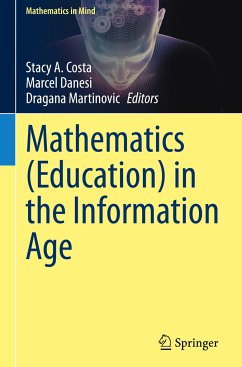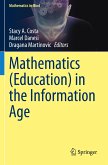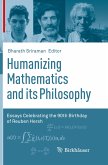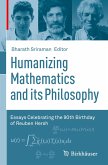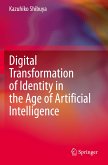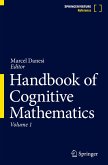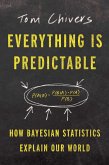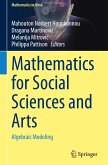This book brings together ideas from experts in cognitive science, mathematics, and mathematics education to discuss these issues and to present research on how mathematics and its learning and teaching are evolving in the Information Age. Given the ever-broadening trends in Artificial Intelligence and the processing of information generally, the aim is to assess their implications for how math is evolving and how math should now be taught to a generation that has been reared in the Information Age. It will also look at the ever-spreading assumption that human intelligence may not be unique-an idea that dovetails with current philosophies of mind such as posthumanism and transhumanism. The role of technology in human evolution has become critical in the contemporary world. Therefore, a subgoal of this book is to illuminate how humans now use their sophisticated technologies to chart cognitive and social progress.
Given the interdisciplinary nature of the chapters, this will be of interest to all kinds of readers, from mathematicians themselves working increasingly with computer scientists, to cognitive scientists who carry out research on mathematics cognition and teachers of mathematics in a classroom.
Given the interdisciplinary nature of the chapters, this will be of interest to all kinds of readers, from mathematicians themselves working increasingly with computer scientists, to cognitive scientists who carry out research on mathematics cognition and teachers of mathematics in a classroom.
"The book is a perfect blend of academic, social, technological and pedagogical discussions. Each chapter ends with references for further reading. ... the book is an excellent addition to the existing mathematics education literature. The very first reading of the book makes one admire both the content of the book and the way it is structured and edited. The lucid style of writing adopted by the authors makes the book readily accessible." (Firdous Ahmad Mala, Educational Studies in Mathematics, Vol. 112 (1), 2023)
"Each chapter provides a wealth of information with deep insight on how mathematics education and 21st-century teaching of mathematics to our students is quite different than even 10-20 years ago. ... I highly recommend this book to anyone who wants to gain a robust and well-rounded experience in teaching the next generation in the Information Age." (Peter Olszewski, MAA Reviews, August 13, 2021)
"Each chapter provides a wealth of information with deep insight on how mathematics education and 21st-century teaching of mathematics to our students is quite different than even 10-20 years ago. ... I highly recommend this book to anyone who wants to gain a robust and well-rounded experience in teaching the next generation in the Information Age." (Peter Olszewski, MAA Reviews, August 13, 2021)

